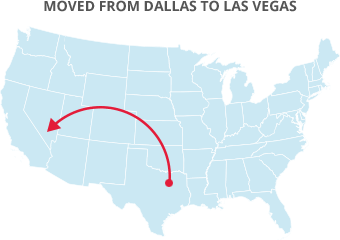

 In many homes, the kitchen is the most involved
space to pack. Most spaces, it's simple enough to bring in a collection
of boxes and put everything into them until there is nothing
left in the room. The natural flow
of the space allows for simple boxing up of items. The
kitchen, be that as it may, calls for
a unique process for every sort
of item. Even if you have moved lots
of times and have become a professional
at wrapping glassware and stacking
newspaper between plates and bowls, there is still that one burning
question: What should you do with the food still in your pantry and fridge?
In many homes, the kitchen is the most involved
space to pack. Most spaces, it's simple enough to bring in a collection
of boxes and put everything into them until there is nothing
left in the room. The natural flow
of the space allows for simple boxing up of items. The
kitchen, be that as it may, calls for
a unique process for every sort
of item. Even if you have moved lots
of times and have become a professional
at wrapping glassware and stacking
newspaper between plates and bowls, there is still that one burning
question: What should you do with the food still in your pantry and fridge?
It would be reckless to trash, it's often tough to work out the best method to manage these pantry leftovers.
Moving the items from your pantry is only a good idea some of the time. The most critical factors to consider are the distance from origin to destination, the safety of the food items, and the expiration dates. If you are only moving a fairly short distance, you might want to pack everything that will go neatly because there is very little lag or danger of spoilage. For cross-country moves, on the other hand, check out the expiration dates and only move things with more than six months before the item expires. Non-glass spice jars and new things can be packed but open packages and cartons should be put to the side. You may also want to weigh in your mind the cost of packing low-priced canned goods when added to a cross-country move.
After you have sorted out the items from your pantry that you are going to take with you, start getting your boxes ready. Plastic containers with snapping lids are best for food transport because cans may become too weighty for cardboard and plastic will block insect infestation. Keep your pantry box as orderly and snuggly packed as feasible to avert discovering a mess when you unpack in Denver.
Place the heaviest items on the bottom and line up any squared-off or boxed items tightly against each other. Use sealable bags and Tupperware to seal open items of food or ingredients. You might find it useful to use dividers made of plastic or a cut-up cardboard box to keep everything upright and secure. Mark the box as delicate so there is no confusion with your movers when they load it into the moving van. If only nonperishable food items are in your pantry box and all items are sealed, it should be allowable to transport with the rest of the boxes, but it’s definitely a smart idea to double check with your moving company about what can and can’t be put in the moving van.
The first point to remember is that foodstuffs in the fridge can and will spoil if they are not taken care of properly. For the most part, refrigerator foods are only moved if the move requires fewer than two hours of driving. That said, it is reasonable to not want to pitch your collection of freezer resources and any residual staples on moving day, but you will have to move it in your car. Moving companies don’t handle food that can spoil.
To move your icebox items, first, be sure the fridge and freezer at the new home are turned on and cooling properly. Then, it should be acceptable to pack up your cold food items into a big ice chest that is about half-filled with ice. Take the items over to the new house, load in the fridge, and relish in not having to go grocery shopping on moving day.
 Finally, there’s the problem of how to handle the foodstuffs you cannot
or don't elect to take
with you. There are places that would
be happy to take the
extra food off your hands and get it distributed
to those who need it. Food donation is a critical variety of local charity, so whether
you have a few packages of dry
pasta or an entire pantry full of
non-perishables, ponder donating what you do not
need or cannot take to your new residence. A-1 Freeman Moving Group proudly takes part
in Move for Hunger, a non-profit
organization that works with moving companies to collect non-perishable food
items, and deliver them to food banks across the country. Click here or on the
picture above to learn more!
Finally, there’s the problem of how to handle the foodstuffs you cannot
or don't elect to take
with you. There are places that would
be happy to take the
extra food off your hands and get it distributed
to those who need it. Food donation is a critical variety of local charity, so whether
you have a few packages of dry
pasta or an entire pantry full of
non-perishables, ponder donating what you do not
need or cannot take to your new residence. A-1 Freeman Moving Group proudly takes part
in Move for Hunger, a non-profit
organization that works with moving companies to collect non-perishable food
items, and deliver them to food banks across the country. Click here or on the
picture above to learn more!
The vast majority of people moving from Point A to Point B has food left in their cupboard, even if you did your best to cook up leftovers. Understanding when to pack, what food can be packed, and when to think about donation is an important component of the moving process. With the right tactics, you can get to your new house in Denver with the maximum number of safely packed non-perishable food items and a good feeling having given the extra to those who can benefit most from it.

